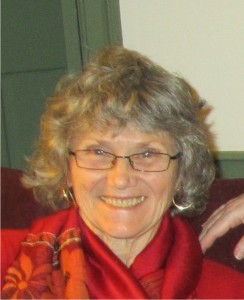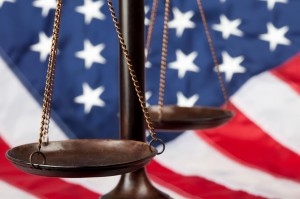Welcome to Cape Courage: oral histories of women from Cape Cod who have struggled to overcome challenges. The location is not important; women from all over the world face the same obstacles: childhood sexual abuse, learning disabilities, physical handicaps, economic problems, sexual challenges, rape, domestic abuse, addiction, disease, loss of a child or sister, difficult relationships, and mothering obstacles. What is important is the strength, bravery, and resilience of these women.
As someone who has worked with women in a non-profit (WECAN) and a local community college for 14 years, I have listened to their stories. I have walked along side many women who have overcome obstacles and have been in awe of their spirit. I have collected the oral histories of 15 women between the ages of 26 and 71 years old. They have chosen which story to tell. I requested that they describe anyone or anything that was helpful and what they learned. I have used pen names.
I will share a new story in this column every month or so. I hope you share my wonder and are inspired when hearing the stories of these wonderful women. I have organized their stories along a reverse lifespan: arranging their stories by the age at which they faced their difficulties. As a developmental psychologist who focused on women’s adult development, this fit my viewpoint and hopefully will assist you in empathizing and connecting with these wonder women from Cape Cod. I welcome comments and questions.
In the sidebar you will find story-relevant local resources and helpful information if who want to learn more about what you read here. Now I will let them speak for themselves.
Cape Courage: Barbara’s Story
Barbara, in her own words:
In short form, I had been molested as a child by a neighbor. Ohh …Life struggles…I do speak freely about them…in the proper settings of course. I have found that in addressing or owning them, women have come up to me afterwards and thanked me for sharing my story.
I was on a Massachusetts state official board for women and after announcing ‘it’ to the other members of the board, one of them pulled me aside and said “I could never admit it to anybody. Thank you very much for doing that.”
It’s something to reach out and help other people with – just let them know that “It’s ok. You’re not alone.”
The same goes for my abusive 25-year marriage. Five kids. Finally I was able to get out of that. A year after the divorce my seventeen –year-old son was diagnosed with Bipolar Disorder. He struggled tremendously and ended up taking his life. It was devastating.
In grieving the death of my son, my mind wanted to shut down. I wanted desperately to escape all responsibility. But I found I had to quickly focus on the other children because of the aftermath of suicide and what it does to other family members.
So it’s been a long grieving process because I’ve had to be there for them. Each of them struggled, in different ways, with the loss of their brother. I turned to my research of history and my writing to escape, when I needed to.
I was in the abusive marriage when I began my writing. The abuse was pretty severe in that it covered all bases: spiritual, emotional, physical.
He became fanatical about religion so that was a lot of what the abuse involved: he controlled everything.
He controlled the car, the money, I had no telephone. We lived in different states, far away from home, and he threatened that if I ever tried to leave he’d take the children and disappear.
It didn’t start getting really bad until about twelve years into the marriage. It was gradual.
Finally we ended up moving back home to Massachusetts. I told my parents and my family what was going on. I got their support and was able to leave.
You need that support.
And of course then you carry the guilt for having your children in that situation for so long. That was definitely part of me finding the courage to get out. I wanted my four sons to realize they couldn’t treat women like this. It wasn’t right.
Jacquie: Do you think they learned this?
Barbara: Yeah, they’re very compassionate and good with females.
Jacquie: I assume that didn’t have anything to do with the son who died?
Barbara: No, he was bipolar and they put him on the wrong meds. At that time they weren’t aware that the medications for teenagers and young adults were causing suicidal tendencies so it just made him worse.
Again, I speak out about that. I don’t know how many times I’ve told people I have a son who took his life and then they’ll tell me their son did too, or their brother did, or… so that’s out there too. People are afraid to speak up unless they’re given “permission” to do it.
I started writing about things that had interested me as a child but I’d never taken the time to look into and research forgotten heroes of the American Revolution. It came about because I was home-schooling my children at the time. I home schooled the two oldest all the way through school.
They were getting into their lower high school grades and I wanted to present them with a history curriculum. So I started to research one of the heroes I had remembered from childhood. It was actually my daughter who told me to make them come alive and to write a book about it.
That’s when I had five children. I would sit up, late at night, when they were in bed, and my husband at the time had no problem with that, so I would just escape in it. Between the research and the writing, it got me through many, many difficult years.
Once I began the research it filled my mind almost 24/7. I was constantly thinking about things I’d learned, constantly thinking how to put it into the book and how I would write biographical fiction. I wanted dialogue in the book so I had to try to imagine how these people would respond verbally to certain things. My mind was always going in that mode.
The first book – because it was written on a very part-time basis while I was raising five kids and home schooling – probably took about 12 years to do the research and to write. The second book took about six years because the kids were still at home.
I’ve been happily divorced now for fourteen years. My book was published shortly after the divorce.
Sometimes we are in a situation and we need to find a place to escape because we can’t get out of it at that time. I believe the writing saved me. Rather than falling into the depths of despair, it gave me hope, and I think of the lives of people who have suffered greatly.
To this day, that’s something that I will think on when I’m not doing well emotionally. Not always historical people. No, sometimes just people who live in Haiti or somewhere like that; the conditions they live under. But always realizing there are worse situations – so just hang on.
I’m writing again. I started my third historical book but in the midst of it I was called to jury duty. I was put on the U.S vs. James J. Bulger case.
That consumed me all summer and it affected me greatly. I couldn’t write. I just didn’t have that freedom, mentally, to actually do the writing and get into the characters.
I’ve decided that rather than just sit back and do nothing, I’m going to write about the trial. I’m writing it in a fictional format to protect myself. At least that’s how I think I’ll be doing it at this point. We’ll see if it develops into something else.
I’m excited about it now that I’m into it. It’s also a release from all that emotion from the trial and what I’ve learned since then. The research was just as important as the writing because it was just as much an escape. Using your mind to figure things out, and being very active in the research, you always learn more and that leads you in another direction.
The other thing now that I’m dealing with, since the Bulger trial, is that I’ve gone public to speak out against the government corruption that was revealed in that trial. That’s a scary place to be because it’s not the bad guys I’m afraid of; it’s the good guys I’m afraid of now. I realized that’s what I want to write about …the trial and what I’ve discovered since…to expose it. It’s kind of scary.
I also realize – and this goes back to my love of history – that people have to stand up when the time comes to stand up.
Or things don’t change.
****
An important support for Barbara was her love of learning. Homeschooling was her entry into writing historical fiction. Finding something that consumed her brain, incited her curiosity and gave her purpose was an antidote to her marital abuse.
Barbara focused on historical characters who spoke the truth. Bringing child sexual abuse, marital abuse and even government corruption out into the open gives Barbara the opportunity to speak the truth as well.
She labels her research and writing as an “escape” which certainly it is in some aspects. But it also empowers her and she uses it to empower others.
Family was also very powerful for Barbara. Raising her children gave her courage and later her family’s support helped her to leave an abusive relationship.

Jacquie Scarborough
Jacquie Scarbrough of Harwich Port is an advisor, counselor, researcher, teacher, activist, learner and a bit of an artist.
She has a master‘s degree in social policy planning and another in educational media and a Ph.D. in developmental psychology. She also studied life coaching.
Jacquie has directed university level research to support social policy decisions and has taught psychology at the college level.
She has been a media consultant to non-profit and educational agencies and an environmental activist.
Jacquie studied the educational, economic, social, family and personal consequences of higher education for poor women, coordinated “women’s expo” on Cape Cod, and in 2000 started the Cape Cod non-profit for women in transition, WE CAN.
She was program director, counselor, and grant writer at WE CAN from 2001-2008, when she retired.
She then became an adult learner advisor at Cape Cod Community College and began the adult learner center.
Jacquie has also been an active volunteer on Cape Cod: WECAN, school councils, United Way Needs Committee, Barnstable County Health & Human Services Advisory Council, Lower Cape Forum for Community Agencies, CAREER (Cape Cod Alliance of Education and Employment Resources), Women in Transition program, and Women’s Expo.
Sexual Abuse Resources
Childrenscove.org
508-375-0410 and 888-863-1900
Child-familyservices.org
800-576-9444
MSPCC.org 508-775-0275
Domestic Abuse/Violence Resources:
CapeCodShelter.org
Safe Harbor Hyannis: 508-790-2933
Children’s Cove: 508-375-0410
Independence House: 800-439-6507
Cape Cod Center for Women, N. Falmouth: 508-564-7233


